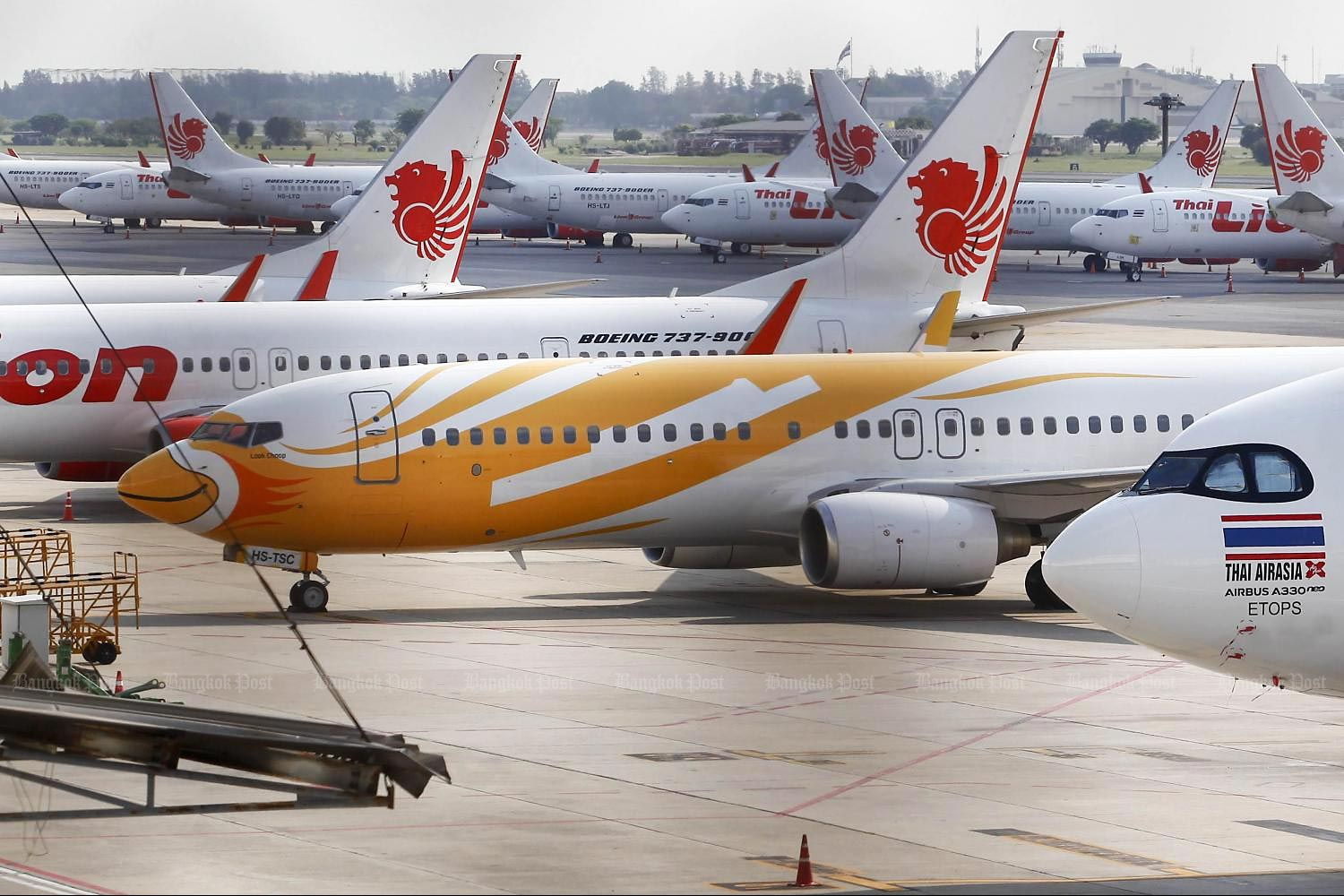
Thai aviation faces a real threat in the fourth quarter when operating costs surge again after the government's aid measures end, while some carriers may not get the soft loans the prime minister has promised.
After a meeting between seven airlines and Prime Minister Prayut Chan-o-cha on Aug 28, there remains no conclusion on how and when state-backed banks will allocate 24 billion baht in soft loans to airlines to mitigate the impact of the outbreak crisis.
Tassapon Bijleveld, executive chairman of Asia Aviation (AAV), the largest shareholder of Thai AirAsia (TAA), said the carrier expects to get more details on loan conditions by next week, as Gen Prayut's working team is following developments frequently.
He refused to comment on reports that TAA and Bangkok Airways are the only two of the seven airlines that will receive soft loans. But he said his own belief is that the other carriers will get some support, though not as much as they have requested.
"We will face a real threat in the fourth quarter if Thailand cannot reopen to foreign tourists," Mr Tassapon said. "Even though the government has approved a special tourist visa scheme, the action plan afterward is more important because tourism operators don't have a clue how to start."
Nuntaporn Komonsittivate, head of commercial operations at Thai Lion Air (TLA), said the airline still has to run on self-survival mode by maintaining domestic revenue and streamlining operating costs.
As the market is stagnant, TLA faces challenges in operating flights at the break-even point as the average load factor fluctuates, particularly between weekends and weekdays.
To prevent losses, each flight should run at a 70% load factor, but the figures for weekday flights are mostly below 50%.
With slow demand, it's hard for any airlines to hit a 98% load factor as they did during the pre-pandemic period, Ms Nuntaporn said.
She said another negative factor to watch is higher operating costs, especially from the jet fuel excise tax swinging back to almost 5.1 baht per litre from 0.20 baht, as the reduction scheme ends in September and the Finance Ministry is unlikely to extend the measure.
"The government asked us to reduce airfare to attract more local tourists, but the average selling price is already aligned with operating costs," Ms Nuntaporn said. "And we have to bear a higher cost from excise taxes starting in October after just two months of reductions."